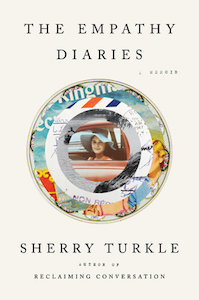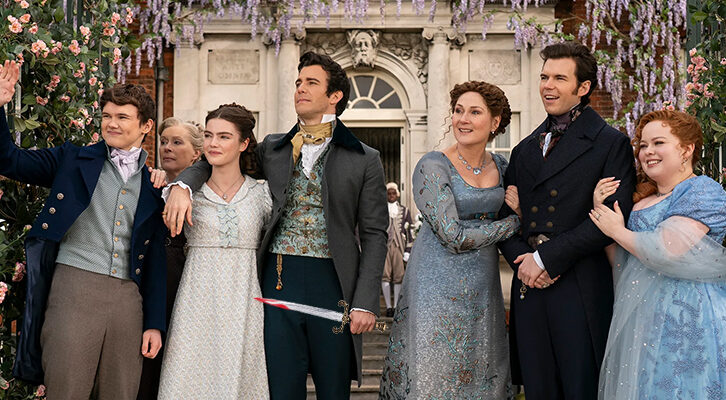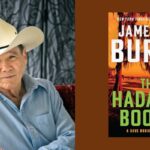
From Burden to Bounty: How Empathy Can Shape Family Dynamics
Sherry Turkle on Reuniting with Her Father After 19 Years of Estrangement
“Hello, is this Sherry Turkle?” The same voice asked if I had recently written to a Charles Zimmerman in Queens.
“Yes,” I say.
“This is your father.”
I haven’t spoken to Charlie in almost 19 years. I saw him intermittently as a child, and then after Milton Turkle adopted me, I never heard from him again. Now he wants to see me. I grab a calendar. He gives me an address. We set a date for the following December weekend, just before Christmas.
Charlie answered the door. He looked like me. That’s what I noticed first. The eyes. The mouth. I have his ears. His first words to me, right there at the door: “Did you find me through the New York Times?”
When I said, “No, I hired a detective,” he seemed disappointed. For a moment I imagined, almost giddy, that he’d been advertising for a lost daughter.
My father turned out to be a rogue scientist. Now a retired high school teacher, for decades he had worked out of his home and had written a book in which he claimed to disprove Einstein’s theory of relativity. Relentlessly, he then wrote to famous scientists, trying to get them to take his work seriously. He also advertised his self-published Einstein book in the back pages of the New York Times Book Review: “E=mc² is not correct. Queens high school teacher disproves Einstein. For more information write Charles Zimmerman.” He provided a post office box number. This is the advertisement my father thought had led me to him. His Einstein disproof is displayed on a table in the living room. It is small and dark and blue.
After such a long time of knowing nothing about him, it was good to find out that Charlie was alive, healthy, and not homeless. The apartment where we met reminded me pleasantly of my grandparents’ Brooklyn home. Here as there, an upholstered sofa and chairs were covered in plastic. There was a dining room set in a wood that looked so shiny that it could not possibly be real. It was some kind of space-age cherry.
Charlie explained that this was the home of his “woman friend,” Lila. She’d been standing shyly behind him ever since he greeted me at the door, and now he introduced me. Lila is petite and pretty. I think of my mother. Tall and imposing, feminine and sociable. Charlie likes the company of women. Women like Charlie’s company. Lila encouraged us to sit down at the table, where food was already spread out. She said how happy she is that this day has come, that she has encouraged it often.
For lunch, Charlie told me that I will have the traditional: bagels, lox, cream cheese. Babka. He will have a kale shake. I knew he was a vegetarian because it was the first thing he mentioned after showing me his New York Times advertisement. A childhood memory came back to me—drinking a cantaloupe malted with him in Prospect Park.
As a child, among the few things I had heard about Charlie was that he was a chemist and that he had given up his right to be in contact with me in exchange for being released from any obligation to pay child support. I think my mother let slip the chemist detail because it was something she could be proud of. I imagined her dreaming that a chemist husband would bring new status. She would visit the world of her parents and sister from a place of nicer things, she would be generous with them, her home could be their gathering place.
At our meeting, Charlie said that he had done graduate work in chemistry and also confirmed the story I’d been told about child support. My mother had wanted to erase her life with him, he said. He didn’t suit her, and her lawyer thought that the easiest way to get rid of him was to ask for what he couldn’t provide: money. You shouldn’t demand money from a father in exchange for letting him see his daughter, he said.
For a moment, I saw Charlie’s point of view. From there, I could imagine that he had actually been interested in me.
Then, over lunch, I began to take the fuller measure of my father. He couldn’t connect over a feeling or even a food. I told him I had missed knowing him. I had longed for news from him—on my birthdays I had waited at the mailbox. He didn’t say he had missed me. It was “how your mother wanted it,” he said. At the table, he drank green juice but did not offer it to anyone else. Then he took small portions from several plates of pale cooked vegetables, none of these offered to the table either. I recognized only one: daikon. I’d seen it in Japanese restaurants.
As we ate—Lila and I, bagels and smoked salmon, Charlie, his eclectic array—I began to ask some questions and was relieved that he was willing to answer them. All these years, I wondered, had he received any news of me? Yes, a little. He had a friend who had worked with my mother when she was a substitute teacher at Lincoln High School in Brooklyn. Through this connection, Charlie knew I had done very well in school. He walked over to a manila folder and produced a June 1965 clipping from a Brooklyn newspaper. It reported that I’d won a scholarship to Radcliffe, and it was accompanied by a photograph. There I am in my official senior year portrait, wearing a black Grecian-style drape and staring into the middle distance somewhat dreamily.
I asked Charlie: “Did you think of writing me?”
“No,” he said. “I thought your mother wouldn’t have liked that.”
At this, I struggled to hold back tears. I told myself that saving the clipping was how he was able to communicate his feelings of connection. But I had hoped for so much more. Then he told me that he knew that my mother died while I was in college. I don’t remember him offering condolences or saying anything about her being gone. His face, I recall, was still.
Charlie said he lost track of me after Radcliffe. But now he’s glad to know that I am a professor at MIT. Because, he said, he and I had been scientists together. We had done “experiments from the start.”
Before I could ask what he meant, Charlie was talking about his scientific passions. Some, he said, were triggered by my birth. How does language begin? Is it innate? Could he make a groundbreaking contribution to child development? Was he perhaps the next Skinner? I felt a shiver, fearing what might be ahead, but Charlie seemed not to notice.
I experienced something I had already begun exploring in my research: how science and technology can make us forget what we know about life.
When I was a baby, Charlie explained, whenever my mother was not around, he used me as an experimental subject. I felt sick and was afraid to ask for details. I remember thinking that I must force myself. And so I did. “What experiments?”
I remember the moment when his story became too painful and I floated away from it, apart from the Sherry in the chair with the coffee cup on the table in front of her. I sat opposite my father and I could hardly breathe.
*
Finally I understood why my mother left him. Why Charlie never dared a holiday card or birthday call. Later, when I told Mildred about my visit with Charlie, I didn’t mention the experiments. I reassured my aunt that Charlie had done me no harm during our visit. But I asked her what she remembered about my mother’s brief first marriage. She confided that very soon after the wedding, my mother was unhappy. Charlie was withdrawn and her new mother‑in‑law was intrusive and critical. Still, Mildred said, my mother chose her troubles with Charlie over the shame of a separation. No one in my family was divorced. Or knew anyone who had been divorced.
But then, one Saturday afternoon in late spring 1949, my mother called and asked Mildred to pick us up. We were living with Charlie in Bayside, Queens, and my mother wanted to leave. She named an intersection close to our home, near some shops. Mildred said that she and my grandmother drove right out and found us waiting on the curb, my mother holding me in her arms, our hastily packed clothes in shopping bags at her feet. The drive to my grandparents’ apartment in Brooklyn was silent; no one asked any questions. Once home, my grandfather was happy to have us under his protection. When Charlie called after us, my grandfather got on the phone. My mother, he said, was getting a divorce.
As Charlie told me that afternoon: “That was the end of that.”
Over time, that meeting with Charlie set many things in motion: I let go of the father I’d tried so hard to find and reclaimed the mother I’d resented for keeping him from me. And something altogether unexpected: The encounter invested my academic work with deeper meaning. Charlie lived at the extreme of a dissociation of heart and mind. In listening to my father coolly describe the experiments he did on me as a young child, I experienced something I had already begun exploring in my research: how science and technology can make us forget what we know about life.
I’ve explored the human effects of science and technology since I arrived at MIT from Harvard in 1976 with a doctorate in sociology and psychology. My subject is the “inner history” of technology, how it changes our relationships, including our relationship with ourselves. Over the years at MIT, I have been able to see how easy it is for a fascination with technology to take well-intentioned people away from empathy and its simple human truths. So technologists become invested in the promise of electronic medical records and forget how important it is for physicians to make eye contact with patients during their meetings. Engineers become fixed on the idea of efficiency, and soon it seems like a good thing to prefer texting to face‑to‑face talk, because on screens we can discuss personal matters with less emotional vulnerability. Talking to and through machines makes face‑to‑face exchanges with people seem oddly stressful. And less necessary. These days, our technology treats us as though we were objects and we get in the habit of objectifying one another as bits of data, profiles viewed. But only shared vulnerability and human empathy allow us to truly understand one another.
There are plenty of good academic and philosophical reasons to investigate empathy as the defining characteristic of the human. Over the years, my commitment to this work evolved. I discovered a connection between my early family life and my professional interest that brought my purpose into focus. Not treating people as objects and trying to forestall technology’s assault on empathy were personal for me.
My father’s love of science and its theories made it easy for him to lose touch with the human needs of his wife and infant daughter. My mother kept secrets and spoke to me in a kind of code. Nothing was straightforward. From childhood, I had to figure out how to read her mind, to intuit the contours of her reality. If I developed empathy, at first, it wasn’t so much a way to find connection as a survival strategy. My parents gave me burdens in childhood that I honed into gifts.
Star Trek popularized the idea of the “empath”—someone bred or groomed for empathy. As things turned out, and without design, mine was the education of an empath for a digital world.
When I was a child, my father’s name was never spoken in our home, and I wasn’t allowed to use my real name, our shared name. My first academic project was to study a French psychoanalyst who believed that your future was significantly determined by how your mother talked about your father’s name. Le nom du père. Precisely. Without the name, I developed a passion for the tangible. I turned to objects stored away and tried to make sense of missing pieces. From a very young age, I saw myself as my life’s detective.
“My mother was my first country, the first place I ever lived,” the poet Nayyirah Waheed once wrote. And then one needs to build a home for oneself in another place, to learn to be oneself. That’s the story I tell here, from an emotionally rich but insular postwar Brooklyn childhood until I was settled in my professional life. I had a sometimes painful path, but I was also fortunate, mentored and loved, present at many exciting crossroads. I was in Paris, Cambridge, and Chicago in the late 1960s and early 1970s, times of extraordinary intellectual and political conversations, and at MIT in the mid-1970s, just at the start of the digital revolution. I was witness to the beginning of many worlds.
My grandmother was a practical woman. She said, “Do the best you can with what you have.” She imagined a life of constraint. I have been given riches.
__________________________________

Excerpted from The Empathy Diaries: A Memoir. Used with the permission of the publisher, Penguin Press, an imprint of Penguin Publishing Group, a division of Penguin Random House, LLC. Copyright © 2021 by Sherry Turkle.
Sherry Turkle
Sherry Turkle is the Abby Rockefeller Mauzé Professor of the Social Studies of Science and Technology at MIT and the founding director of the MIT Initiative on Technology and Self. A licensed clinical psychologist, she is the author of six books, including Alone Together and the New York Times bestseller Reclaiming Conversation, as well as the editor of three collections. A Ms. Magazine Woman of the Year, a TED speaker, and featured media commentator, she is a recipient of Guggenheim and Rockefeller Humanities fellowships and a member of the American Academy of Arts and Sciences.



















